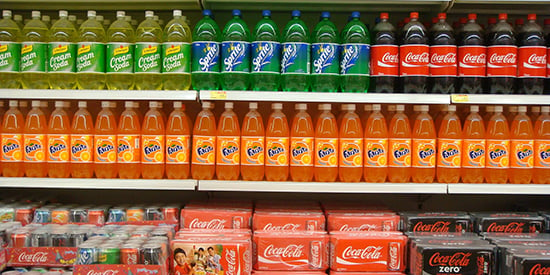Study shows sugar tax would benefit low income groups
Media releaseA major criticism of the public health lobby's proposed sugar sweetened beverage tax - that it would unfairly punish disadvantaged groups - has been debunked by new research from Deakin's Global Obesity Centre.
The study is the first of its kind to examine the equity of a 20 per cent tax on sales of sugar sweetened beverages in Australia, by assessing potential cost-effectiveness, health gains and financial impacts, for different socioeconomic groups.
Its modelling predicts that those in Australia's lowest socioeconomic group would receive the greatest health benefits from the tax, and the extra cost to them due to the increased price of soft drinks would be just $5 more than the highest socioeconomic group per year.
Lead author Anita Lal, a PhD candidate in Deakin's School of Health and Social Development, said the study showed a sugar sweetened beverage tax could save $1.73 billion in healthcare costs over the lifetime of the population.
"We estimated the increase in annual spending on sugar sweetened beverages would be an average of $30 per person, or just 60 cents per week, a reasonable cost when the health benefits are taken into account," Ms Lal said.
"While those in disadvantaged areas will be paying slightly more tax, the difference is very small, only about $5 per year."
The study - published in PLOS Medicine today - looked at predicted changes in consumption levels due to a change in price, then converted that to a change in population body mass index, which then helped predict the reduction in the prevalence of certain diseases related to obesity.
Ms Lal said health benefits were likely to be better felt by lower socioeconomic groups as they were typically more price sensitive - so more likely to stop buying soft drinks when prices increased - and were also higher consumers of sugary drinks, so there was a greater scope for reduction.
"A 20 per cent tax on sugar sweetened beverages is likely to decrease purchase and consumption, leading to significant health gains and healthcare cost-savings across all socioeconomic groups," she said.
"However, as a percentage of household expenditure, we found that the lower socioeconomic groups will save the most in out of pocket health care costs.
"Of course this tax isn’t going to solve obesity on its own, but it can be an important part of the solution.
"It's about making the healthy choice, the easier and more affordable choice."
Annual tax revenue from the proposal was estimated at $642.9 million in the report.
Research supervisor Professor Anna Peeters, from Deakin's Global Obesity Centre, said the equity of the tax could be even further improved if this government revenue was used to fund initiatives benefiting those with greater disadvantage.
"In Australia right now almost two in three adults are overweight or obese, and a quarter of all children," Professor Peeters said.
"We know that sugar sweetened beverages are playing a big role in that, and something has to be done.
"The World Health Organisation recommends adults consume no more than six teaspoons of sugar per day, but the average Australian is more than doubling that amount, with those in our most disadvantage groups often the highest consumers.
"A 330ml bottle of Coke has nine teaspoons of sugar, and these kinds of beverages have no nutritional value."
Professor Peeters said a sugar tax had been shown to work in other countries, with similar proposals being greenlit in the UK, South Africa and some US states.
"A sugar sweetened beverage tax has been in place in Mexico for two years, and a drop in sales has been observed over the same period," she said.
"They've also seen the biggest drop in consumption in their most disadvantaged groups."
This research was supported by the National Health and Medical Research Council, University of Queensland and Cancer Council NSW.

